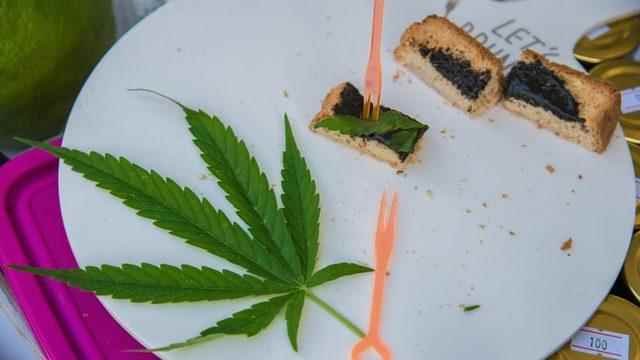Growing cannabis and selling cannabis at home has become legal in Thailand.
Thailand was the first country to step in this direction in Southeast Asia, which is known for its harsh drug laws.
On the other hand, using cannabis remains illegal. However, experts say that with this step, using cannabis will also go unpunished in practice.
The government hopes the domestic cannabis trade will contribute to agriculture and tourism.
So much so that one million cannabis seedlings were distributed to the citizens.
“This will create an opportunity for both the public and the government to make money from cannabis and cannabis,” said Anutin Charnvirakul, Deputy Prime Minister and Minister of Health.
Sharing the cannabis chicken recipe on his Facebook account, the minister stated that the active ingredient in cannabis, tetrahydrocannabinol (THC), cannot exceed 0.2 percent in meals.
Clinics across the country will also be able to give therapeutic cannabis to their patients.
Thailand became the first country in Asia to legalize therapeutic cannabis use in 2018.
But experts advise against smoking marijuana in public, as recreational use is still illegal.
The government also plans to release 4,000 people from prisons for cannabis-related crimes.
The country, which has a year-round tropical climate, has a deep-rooted history in cannabis use.
Analysis: Jonathan Head, BBC News
Is it legal or not?
As the Thai economy struggles to recover from the impact of Covid-19, many tourists wonder if they can smoke cannabis whenever and wherever they want.
The government’s answer is clear: No, you cannot smoke cannabis in public.
Moreover, the sale of products with a THC content of more than 0.2 percent remains illegal.
Thailand’s official goal is to stay one step ahead of its neighboring countries in the lucrative market for medical treatment using cannabis and products made from cannabis, especially in the trade of another active ingredient, CBD.
But there is one more goal: to reduce the population in some of the world’s most overcrowded prisons.
Now that it’s legal to grow and sell the plant, it wouldn’t make much sense for law enforcement to detain people carrying marijuana.
Before this law was passed in Thailand, many companies were selling hemp-based products and restaurants were adding hemp leaves to traditional dishes.
It is a matter of curiosity how the authorities will control the THC ratio in these products.
That line was blurred even before the new law, although the government said production and use were only permitted for medical purposes.
